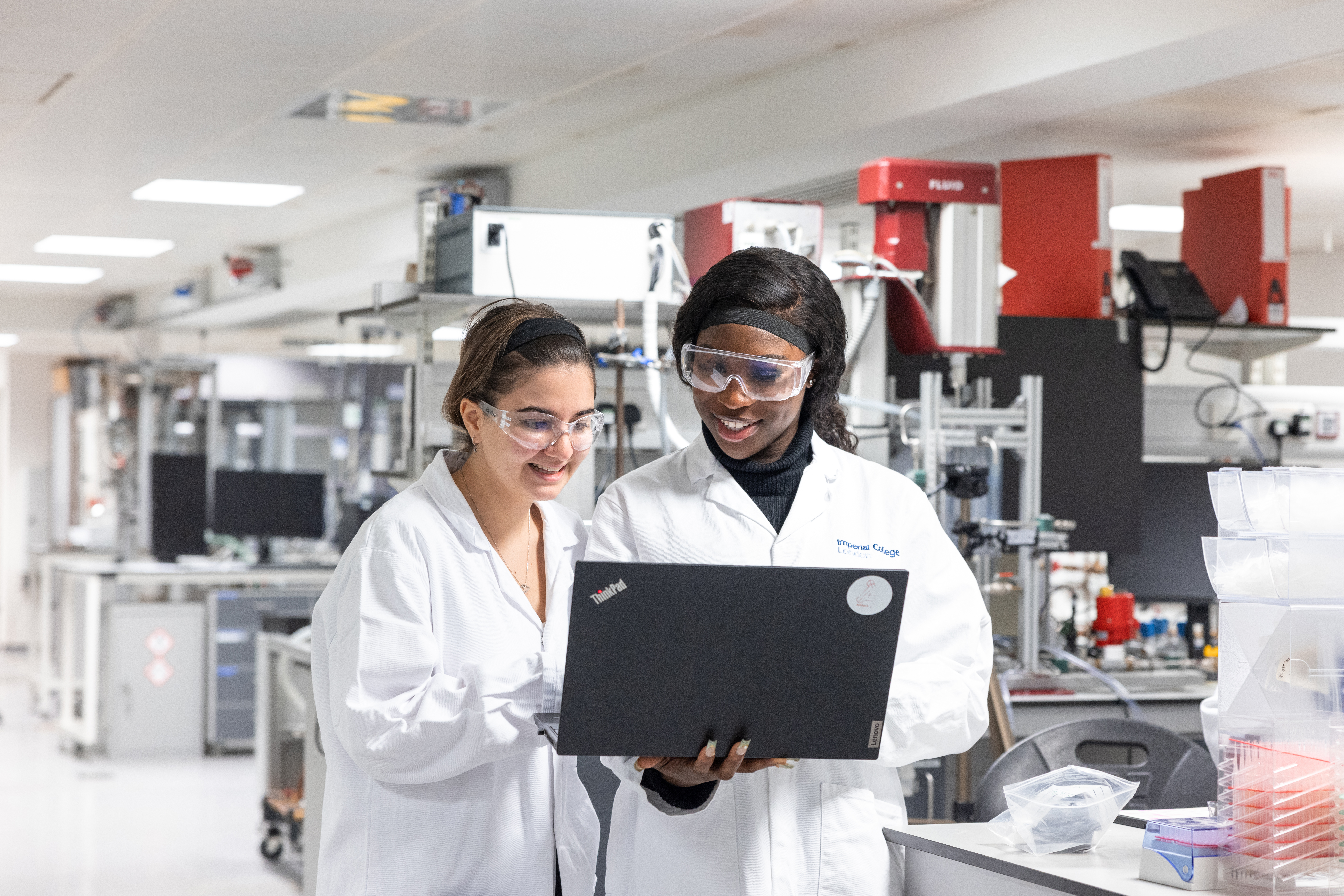Born and raised a vegetarian, Juproop Singh Lalli’s journey to Imperial College London began with a curiosity sparked by “meat-free” products. This led him to discover the profound impact of chemical engineering on various industries — from water treatment to pharmaceuticals.
“I wanted to gain further insight into what was being taught that made this degree such a Swiss-army tool of a qualification!” he says. “I knew Imperial was the perfect place for this due to its high achieving status and the chance to work on the Carbon Capture Pilot Plant — this is integrated into the curriculum and an opportunity few other universities around the world can offer.”

Source: Imperial College London, Department of Chemical Engineering
Imperial College London, which ranks third in Europe and sixth in the world QS World University Rankings 2023), is home to a Department of Chemical Engineering that is impressive in its own right. Ranked seventh in the world, the division serves as a launchpad for real-world impact. Through strategic collaborations with world-leading researchers and industry partners, as well as an extensive list of state-of-the-art facilities, it provides a unique blend of learning and practical opportunities that empower students to make tangible contributions to the world-changing sector.
As an MEng in Chemical Engineering student, Lalli is gearing up to do just that in various ways. This is because the route he chose was designed to immerse students in the world of Chemical Engineering from their very first day on campus.
So far, the annual Roger Sargent lecture has provided a window into cutting-edge technology and its impact on the Chemical Engineering industries. The Undergraduate Research Opportunity Programme (UROP) has allowed Lalli to contribute to cutting-edge research, providing a contextualised understanding of theoretical concepts in practical settings. In the labs, he got to conduct a standout project that involved investigating the effects of baffles in stirred tank reactors, a crucial element in pharmaceutical manufacturing.
“It would be an injustice to not mention the Carbon Capture Pilot Plant once again,” he adds. “We were tasked with running it continuously under supervision for several hours. It was a nice challenge, especially with all the mock scenarios that we were given to deal with and countless alarms. This allowed us to get hands-on experience of process failures and control mitigation, which most chemical engineers don’t get until they work in the industry.”
This emphasis on experiential knowledge is just one of the reasons why the Department of Chemical Engineering consistently does well in the National Student Survey. An engaging curriculum with exciting exposure aside, Lalli attributes this success to dedicated personal tutors, outstanding well-being support and the Chemical Engineering Society, which enriches the student experience by fostering a sense of community through diverse events ranging from career-focused sessions to social gatherings.
The society’s career talks have played a massive role in clarifying Lalli’s interests and dislikes. He may be a year away from graduating, but he is already taking his first strides into the world of work with confidence. “Both the department and Imperial have been invaluable in helping to support this,” he says.
As a Department Academic Representative, student Alice Zhu from China, leads many initiatives that are a hit among students like Lalli. Each focuses on enhancing the student experience. For example, some of her very first tasks on the job revolved around creating department-specific Reels to show new students around campus and help them feel more confident in navigating their new surroundings.
As a member of the Safety Committee, Zhu contributes to a culture of accountability by reviewing past incidents, distilling lessons learned, and strategising preventative measures. In the Taught Course Committee Meetings, she collaborates with staff members to align the curriculum with the evolving landscape of IChemE regulations, student needs and emerging industry trends.
“Based on these meetings, I am more than certain that the department takes the satisfaction of its students in the most serious manner,” she says.
Zhu organises the Newitt Lecture, too — an event that invites graduates to share their career journeys and insights into the future of chemical engineering. Coordinating these events while balancing the rigours of the MEng in Chemical Engineering programme, is no easy feat. But the diverse skill set Zhu has already acquired — less than two years into her education — fuels her determination to wear as many hats as she can.
With each day she spends juggling academic excellence, lab work and student representation, she finds herself feeling more prepared for the dynamic demands of her future career.
“I have learned to derive complex equations and make use of intricate data — key skills I will need whichever career path I choose. And so long as I am working with people, which I have no doubt will be the case, I will need the teamwork, communication, and interpersonal skills I gained as a representative,” she shares.
“Regardless of the career path, Imperial ChemEng has certainly equipped me with the necessary technical and soft skills to survive in a job.”
Follow Imperial College London on Facebook, Instagram, X, and YouTube










